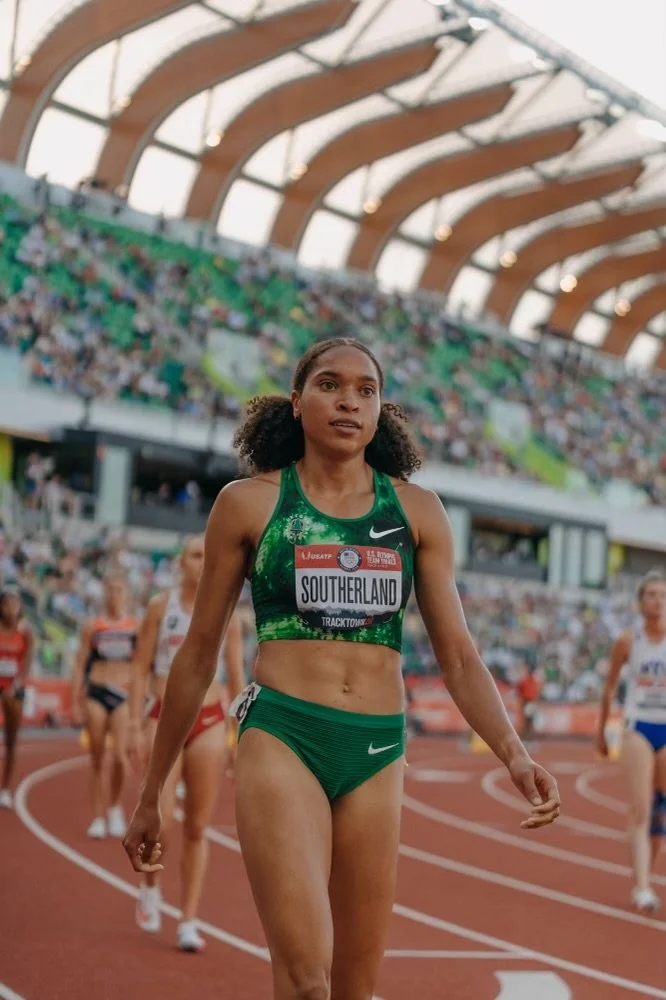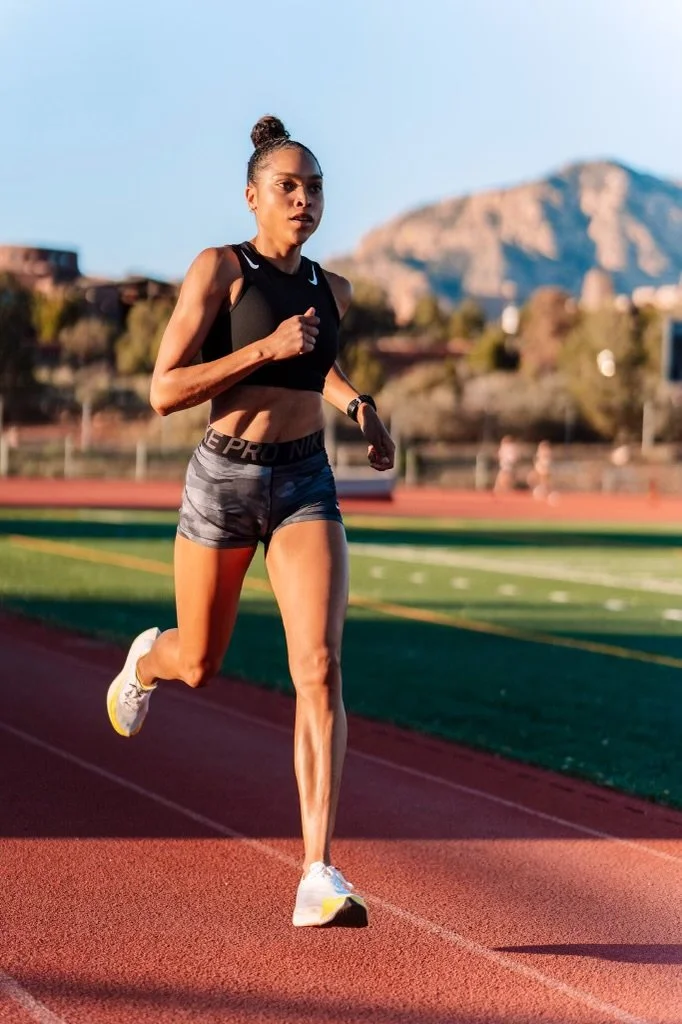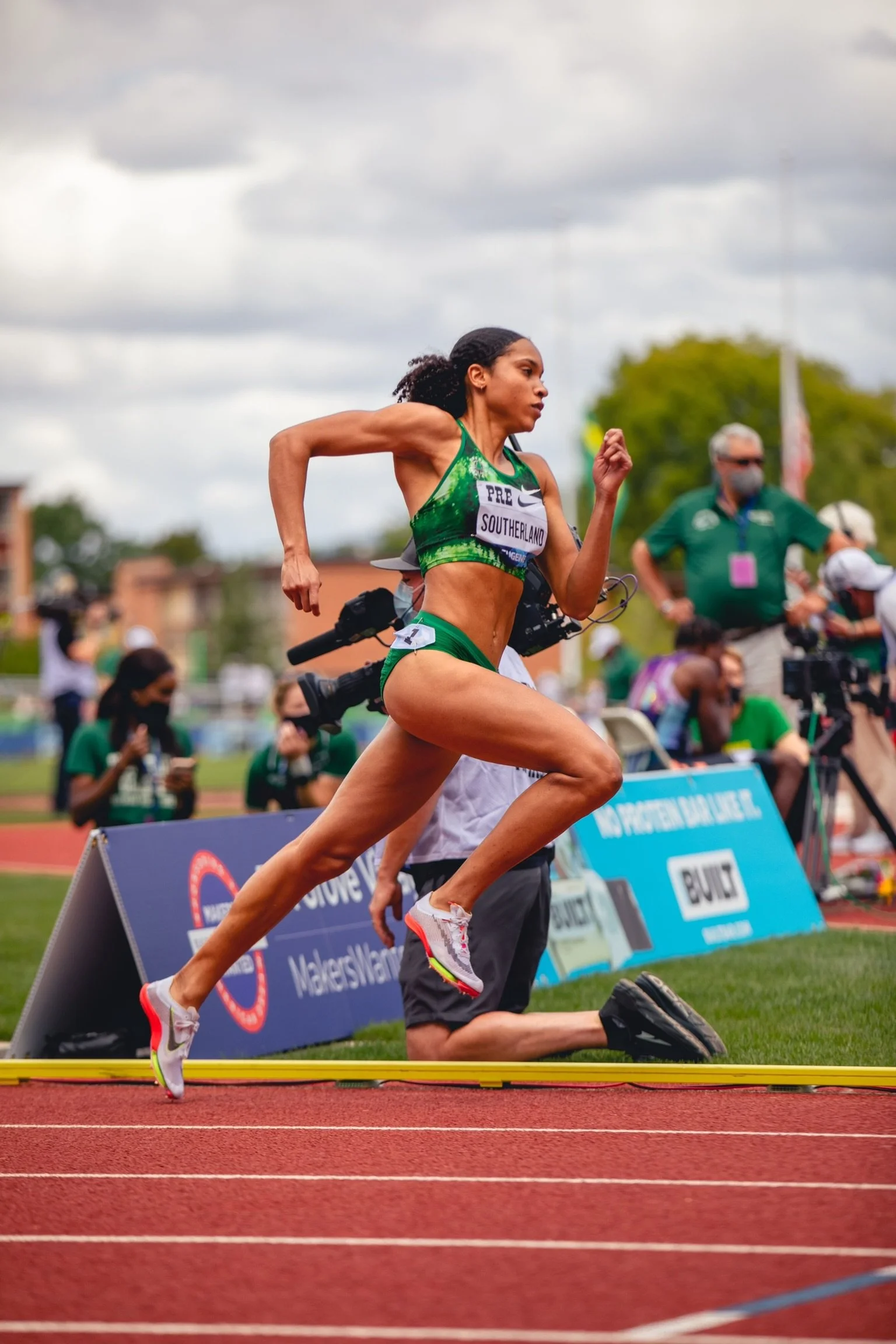Interview with track runner Sabrina Southerland
Sabrina Southerland is a professional runner sponsored by Nike. She is from Floral Park, Queens, New York. She ran track for 4 years and got her undergraduate degree from Georgetown University as a Hoya. Her degree was in Sociology and Psychology with minors in Women’s Studies and African American Studies. After that, she ran track for the Ducks at the University of Oregon while working on her master’s degree. She graduated in 2019 with her Master of Nonprofit Management.
I have written most of what we talked about below. You can listen to the full podcast HERE.
Q: Have you ever faced any injuries or setbacks?
A: Yes, I think that’s a super big thing I deal with pretty much every year. Running has high impact especially when you’re running a lot. I had a tear in my achilles for the second time recently and I just got out of the boot. I got a PRP injection, which means Platelet Rich Plasma. In order to heal the tendon or the area, they take blood from another part of your body and mix it with something and put it in the injured area. You have to sit out for awhile but it’s all a part of the process. I do mainly the 800. It’s a sprint and requires you to be up on your toes so that’s how the achilles is affected. I’ve also had a stress fracture in my shin one time.
Q: What’s the biggest difference between college and pro?
A: You really have to figure out a lot of things on your own. In college, you don’t really have to think about what you have to do because it’s all structured for you. In the professional level, you need to know what you’re doing on your own. You plan all your races and have to know who you need to talk to all on your own. The transition out of college into pro was difficult and can get confusing but it’s better now that I’ve gotten used to it. Nike sponsors me so I get paid in a salary and I have a travel budget in my contract.
Q: What do you anticipate transitioning out of competing will be like? What are you looking forward to do in your free time?
A: It’s kind of scary to think about but I think I’d want to get into youth engagement and community relations with a professional team. That would be my dream job.
Q: What do you feel is a resource you would utilize if it was available to you so far during your career?
A: I would love to have a sports psychologist. It’s crazy that we don’t get that for free. That’s a resource that I would utilize. That’s one of the most important elements in sports. If your mental game isn’t all the way there then you’re not able to compete very well. I think it should be free for all athletes. That would be my number one thing. It’s different between a regular psychologist and a sports psychologist because they understand what you’re going through. It’s a whole different part of my brain compared to my regular life stress so I think it’s so important to have that.
Q: Did you consider being a full time coach?
A: Yeah, I am considering that. That would be a super cool opportunity if I did get a coaching job and it would be cool to be on the other side. To be a coach you have to know so much. You really have to give credit to your coaches. There’s so much thought put into it and it would be super cool to learn that.
Q: What was one of your favorite moments while competing?
A: At Oregon when I won the 800 indoors at NCAA’s because I remember being in shock almost. It’s kind of like I surprised myself. Especially in track town Eugene.
Q: What advice would you give to someone who is currently playing a sport?
A: I think honestly at all levels it’s important to trust the process and take it one day at a time. No sport is linear and there will be bumps in the road and be patient. Enjoy it. It’s such a privilege to do any sport and take in every moment. Go Ducks!
If you have any more questions for Sabrina, please leave comments below or contact me. If you or someone you know is struggling, please call the Suicide Hotline. It’s toll free and available 24/7 at 800-273-8255.
Once An Athlete’s mission is to provide resources and support for current and former athletes. Please support our mission by making a donation.
Are you or someone you know currently struggling with what happens in life after sports? Or did you already go through that transition to life after retiring competitive sports and wish you had more resources and support? Have you ever wondered, “what do athletes do after they are done playing sports? What’s next after sports?” Do you feel like you dedicated so much to your sport and you don’t know what to do now that you’re done competing? You’re not alone. Check out the site and join us in the journey. Once an athlete, always an athlete.
More blog posts with cross country / track runners:




